Advisory Board
The ERA-LEARN consortium is supported by an Advisory Board. For the project period 2023-2027 it consists of 10 experts. Every 6 months, the Board comes together to discuss past and newly planned ERA-LEARN activities and support the project by giving valuable advice and new ideas.
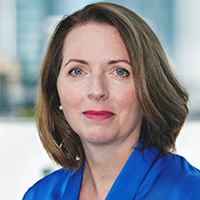 Muriel Attané
Muriel Attané
Muriel Attané, EARTO Secretary General since July 2013, is a EU Public Affairs professional with a strong track record in strategic programming of EU policies helping research organisations to develop successful European strategy, as well as support them in setting-up and running powerful and efficient EU representation and networkis. She is the Founder & CEO of EUROPESYNC a professional EU Public Affairs Boutique Consulting Firm based in Brussels. Before joining EARTO and founding EUROPESYNC, she worked as EU affairs manager for more than 10 years for TNO (Netherlands Organisation for Applied Scientific Research), the largest Dutch RTO. There, she gained extensive hands-on experience on EU Research & Innovation Policies & Funding Programmes. In parallel, she was Secretary General of EARPA, the European association of automotive R&D organisations for 7 years.
 Alexander Grablowitz
Alexander Grablowitz
Alexander Grablowitz is the Head of Unit for EU Research and Innovation policy in the Federal Ministry of Education and Research (BMBF) in Germany. He is responsible for matters concerning the European Research Area and Horizon Europe and rapporteur of the ERAC ad hoc group on the future of ERA. Alexander is the main correspondent for all partnership related negotiations (SBA, Horizon Europe, EIT, Metrology). He is the German delegate for the Strategic Programme Committee and the co-chair of the Partnership Knowledge Hub.
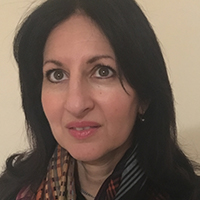 Jennifer Cassingena Harper
Jennifer Cassingena Harper
Dr Harper’s area of expertise is Research and Innovation Policy in transition economies and foresight. She has coordinated EU Framework Programme projects and studies in this area and has participated in EU tenders. She has been active at European and international level serving on a number of EU DG Research High Level Expert Groups, including the EU DG Research Expert Group on Strategic Foresight in Research and Innovation (2016-7), DG Regio Cities Foresight (2010), the Lisbon 3% Objective (2009), RD4SD (2009), ERA Rationales Group (2007), EU SCAR Foresight HLG (2006), the EU HLG on Key Technologies (2005). She has been a member of the JRC FTA Committee and recently completed a JRC study on scenarios to address SDGs. She currently acts as expert, evaluator, reviewer and observer on H2020 programme, covering joint programming, security and EIC.
 Daria Julkowska
Daria Julkowska
Daria Julkowska has a PhD in molecular biology and pursued her scientific vocation by the post-doctoral experience in cellular biology, at Institut Pasteur, Paris and extensive training in communication and European Union counselling. She also holds MSc in Management of Research from the University of Paris Dauphine. She is the Scientific Coordinator of the European Joint Programme on Rare Diseases that brings together over 130 institutions representing different type of stakeholders (researchers, funders, clinicians & patients) from 35 countries from Europe and beyond, and is also responsible for the coordination of the IRDiRC Scientific Secretariat. She is involved in the rare diseases field since 2010. She developed and put into action a set of collaborations facilitating research, including the partnerships with European Research Infrastructures, Patients’ Organizations and industry. She has an extensive knowledge and understanding of European funding schemes and programmes and serves as the chair of the Expert Group on support for the strategic coordinating process for European partnerships of the European Commission. In 2020 she received EURORDIS Black Pearls Award for the European Rare Diseases Leadership.
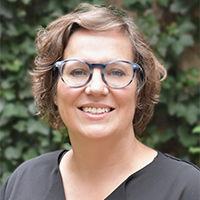 Pirita Lindholm
Pirita Lindholm
Pirita Lindholm is the Director of ERRIN - European Regions Research and Innovation Network. ERRIN is a well-known Brussels-based network that gathers around 120 regional organisations from over 20 European countries. Established in 2001, ERRIN supports members to enhance their regional and local research and innovation capacities and further develop their R&I ecosystems. Pirita is an enthusiast of mission oriented policy, and served as a member of the Mission Assembly of the climate-neutral and smart cities mission between 2019-2021. Furthermore, Pirita has over 20 years of experience working in European networks representing local and regional actors, especially in the policy areas of climate, energy and sustainability.
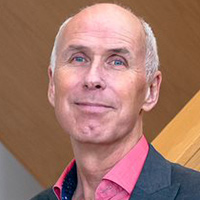 Jaap Lombaers
Jaap Lombaers
Jaap Lombaers graduated from Delft University of Technology (Industrial Design Engineering). He was researcher at TNO’s Human Factors institute, then became human factors consultant for Dutch Railroad and in 1987 moved back to TNO, involved in product development for industrial clients worldwide. Projects included food vending equipment, barcode readers and supermarket self-scanning. In 1996 he became manager of TNO’s Product Development Division.
In 2005 he co-founded and became managing director of Holst Centre, an open innovation research center by imec (BE) and TNO (NL), involved in wireless sensors and flexible electronics. It became a role model for joint innovation. In 2010 he co-founded Solliance, an initiative in the field of thin-film photovoltaics. In 2015 he co-founded Brightlands Materials Center (BMC), an initiative in the field of polymer-based innovation. In 2019 he was co-founder of Chip Integration Technology Center (CITC). In 2019 he became TNO’s director of Knowledge Management and Partnerships, responsible for TNO’s portfolio of ‘Early Research Programs’ and for TNO’s account management. Partially retired in 2023 he is now coaches various established and emerging Joint Innovation Centers.
From 2012 to 2023 he served as vide-president of Photonics21, the European Public Private Partnership in the field of photonics. He contributed to its restructuring towards the current model of a core technology program surrounded by application programs that bridge with other European PPP’s.
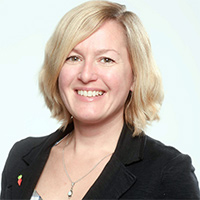 Cornelia Schwenk
Cornelia Schwenk
Cornelia Schwenk is currently the head of EIT Community Education at EIT Food, working with the EIT Community and other European agencies to strategically foster talent through joint initiatives and networking across the learner lifecycle.
Coming from a Geography, and Climate Science background, Cornelia joined EIT InnoEnergy in 2012 to support their Education portfolio in the Master Programmes and has never really looked back since, enjoying the collaborative, crosscutting, pan-European exposure in a fast-moving environment. Since 2018, Cornelia has been actively supporting EIT Food’s mission to transform the European Food System and making a difference in the education landscape.
She enjoys enabling others to grow and providing them with toolboxes to personal and professional success.
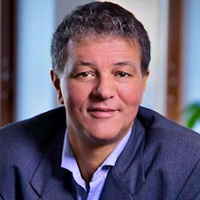 Magnus Tannerfeldt
Magnus Tannerfeldt
Dr. Magnus Tannerfeldt is a vice-chair of Biodiversa+ and has served on the Steering Committee of the Belmont Forum. He has a PhD in zoology and a strong expertise in polar science and international collaboration.
Magnus is currently based at the national research funding organisation FORMAS in Sweden, where he manages collaborations and funding for environmental, climate and sustainability research, and applied systems analysis. He has more than 20 years of experience in management, international cooperation, polar research, and field work. His work includes leading and advisory positions at GRID-Arendal, Belmont Forum, SSEESS, Swedish Polar Research Secretariat, European Polar Board, Forum of Arctic Research Operators, ARICE Arctic Research Icebreaker Consortium for Europe, and SEFALO the European project for conservation and research for the endangered arctic fox.

